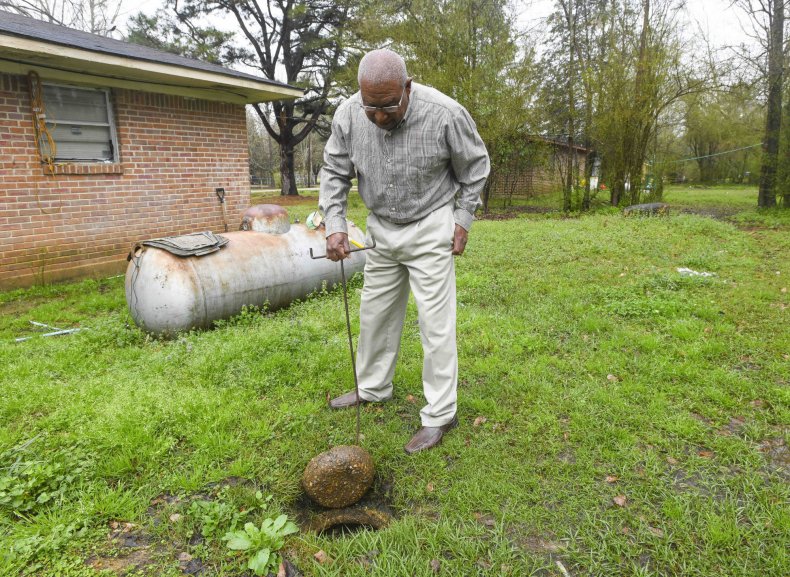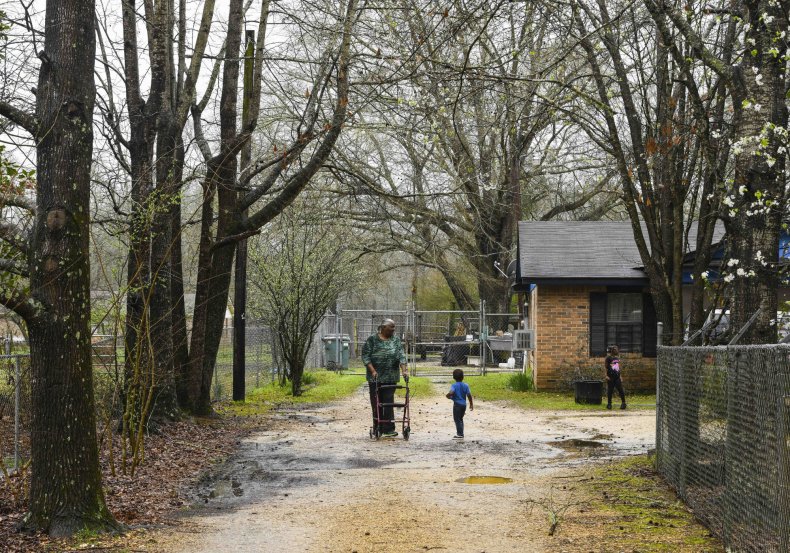DOJ Launches Probe Into Problems That Leave Poor Alabamians With Sewage in Yards, Houses
The U.S. Department of Justice announced Tuesday that it will begin an investigation into possible racial bias in the handling of longtime wastewater issues in Lowndes County, Alabama, the Associated Press reported.
The issues have left some Alabamians with sewage in their yards and with an increased risk of hookworm.
The investigation will be looking into whether the Alabama Department of Health or the Lowndes County Health Department discriminated against Black residents.
"Sanitation is a basic human need, and no one in the United States should be exposed to risk of illness and other serious harm because of inadequate access to safe and effective sewage management," Assistant Attorney General Kristen Clarke told AP.
The Justice Department told AP that Alabama officials are cooperating and that no conclusions have been drawn. Alabama Department of Public Health spokesman Ryan Easterling said they could not comment on the pending probe.
"ADPH is committed to cooperating with the investigating agencies to have this matter resolved as quickly as possible," he said in an email.
AP reported that 26 percent of Lowndes County's residents live in poverty, making septic tank upkeep more difficult.
For more reporting from the Associated Press, see below.

This is the Justice Department's first Title VI environmental justice investigation for one of the department's funding recipients and federal officials suggested there will be more to come, since addressing discriminatory environmental and health impacts through enforcement of the nation's civil rights laws is a top priority of the Civil Rights Division.
Alabama's Black Belt region gets its name for the dark rich soil that once gave rise to cotton plantations but the type of soil also makes it difficult for traditional septic tanks, in which wastewater filters through the ground, to function properly.
The region's intense poverty and inadequate municipal infrastructure contribute to the problem. Maintaining septic tanks have typically been the responsibility of a homeowner, while local governments maintain sewage systems. Some homes in the rural county still have "straight pipe" systems, letting sewage run untreated from home to yard.
Charlie Mae Holcombe of Hayneville described to AP in 2019 how the sanitation system in her small city will back up and overflow at times, sending raw sewage into her house and swamping the child's swing set in her yard.
"They have had to come and pump it out of my yard with the pump truck," Holcombe said. "It's backing up, even in my bathtub. The sewage has run over all in the house."
A study by Baylor University in 2018 estimated that about one-third of the county's residents tested positive for low levels of hookworm, an intestinal parasite that typically spreads through human feces. It is most commonly found in non-industrial nations in the Southern Hemisphere. State health officials disputed the findings because of the small sample size and the methodology used.


